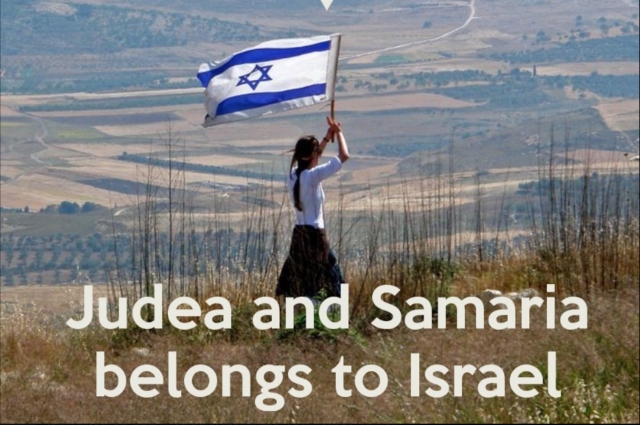In a bold statement at the Knesset plenum on Monday evening, Likud MK Tally Gottlieb called for the re-conquest and re-settlement of the northern Gaza Strip. Emphasizing the need for a strong response to perceived threats, Gottlieb remarked, "My enemy is so vicious, all it understands is the language of humiliation and cruelty. The answer? Conquer and settle the northern Strip."
Gottlieb's advocacy for settlement expansion is part of a broader narrative of reclaiming historical Jewish territories. "We can rebuild this country, bring it back to its former glory...occupation is not a dirty word," she added, reflecting a sentiment shared by many in her political sphere.
*Some*, definitely not all, children of survivors of the greatest sin in history are planning a new one.
— Jürgen "jkr" Kraus (@jkr_on_the_web) December 25, 2023
"The Right-Wing Israeli Campaign to Resettle Gaza"
"https://t.co/iArygQozdv"
This comes in the backdrop of the Israeli government's recent approval of a substantial budget allocation - 75 million shekels (approximately 20 million dollars) - aimed at bolstering the security of settlement outposts in Judea & Samaria. These areas, largely considered legal under international law as per the 1993 Oslo Accords, have witnessed the emergence of some unauthorized outposts, often built on disputed lands.
The financial support for these communities, while contentious, aligns with the government's broader strategy against Hamas and other militant groups in Judea & Samaria. Recent security operations in these regions have been intense, leading to significant casualties and injuries, as reported by Palestinian officials. The classification of combatants and civilians in these reports often becomes blurred, especially when militants engage in conflict while dressed as civilians.
The Israeli government approved in a cabinet meeting a proposal to allocate NIS 75 million to fund "security components" for illegal West Bank settler outposts following the request of Finance Minister Bezalel Smotrich https://t.co/jZgXzYKLPG
— PedroConrado Richter (@pedrorichter) December 24, 2023
The focus on expansionist policies has intensified under what some consider Israel's most right-wing government to date. Figures like Itamar Ben Gvir and Bezalel Smotrich, known for their expansionist views, have been instrumental in policies related to security and land appropriations in Judea & Samaria. Their positions have heightened concerns internationally about potential land grabs. Gottlieb's recent comments are seen as reinforcing these apprehensions.
In defense of the controversial outposts, Finance Minister Bezalel Smotrich, who backed the recent budget allocation, emphasized the importance of settlers' security. "The lives of settlers are equally important," he stated, addressing the criticism of the government's decision. He highlighted the settlers' right to safety and a fair hearing under both International and Israeli law, especially in areas controlled by Israel as per the Oslo Accords.
There is no occupation. There is an agreement signed by the PLO called the Oslo accords which allows Jews to live in Area C. The Arabs get areas A & B where they practice apartheid by banning Jews. #Israel #Osloaccords. pic.twitter.com/mXUgryYkOT
— MOT (@nachal_giyus86) June 6, 2023
The Israeli NGO Peace Now notes that there are 144 government-authorized settlements in Judea and Samaria, including cities like Ariel and Efrat. Despite the controversy surrounding over 100 disputed outposts, an estimated 700,000 Israelis live in Judea, Samaria, and East Jerusalem. The Palestinian Authority, which views these areas as part of a future state, contests this, despite the Oslo Accords acknowledging Israeli control.
The debate over resettling the Gaza Strip has been rekindled, especially after the 2005 Israeli withdrawal that saw over 8,000 Jewish settlers displaced and the region falling under Palestinian control. This move, instead of fostering peace, led to increased hostilities, with Hamas using Gaza as a base for rocket attacks on Israel. The aspiration to retake and resettle the territory, once deemed unrealistic, is gaining traction among certain Israeli groups.
However, public opinion in Israel appears divided. A recent Hebrew University poll indicates a majority opposition to resettling Gaza post-conflict. This sentiment aligns with both U.S. policy and the official stance of the Israeli government, led by Prime Minister Benjamin Netanyahu, who has termed the idea of rebuilding Israeli communities in Gaza as "not a realistic goal." The complexities of establishing Jewish enclaves in such a hostile environment pose significant moral and military challenges.
🚨BREAKING: ISRAEL ALLOCATES $21M FOR WEST BANK SETTLEMENTS
— Mario Nawfal (@MarioNawfal) December 24, 2023
Israel has allocated $21 million for West Bank settlements, in stark defiance of UN rulings that declare these settlements illegal.
Despite UN rulings against their legality and in light of the US and UK banning… pic.twitter.com/cC8wiMd9jt
Yet, the possibility of resettlement remains on the table, driven by a radical minority within Israel committed to this cause. Their influence, particularly within Netanyahu's coalition, which relies on hard-right parties, cannot be underestimated. The back-to-Gaza movement, though facing significant hurdles, continues to gain momentum, signaling potential shifts in Israel's geopolitical landscape.


